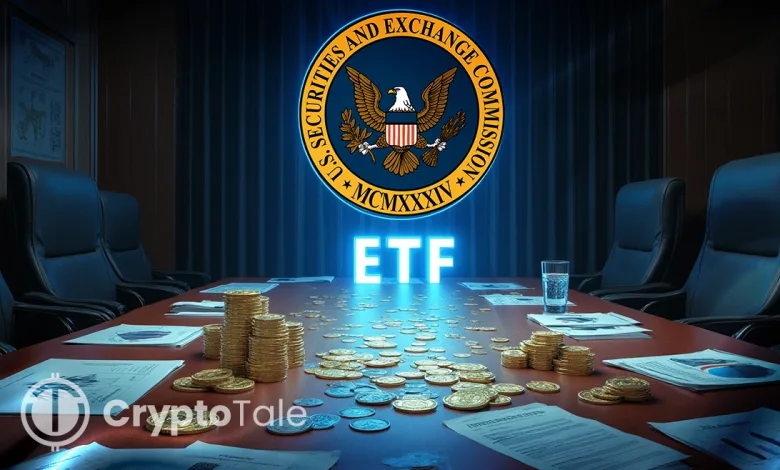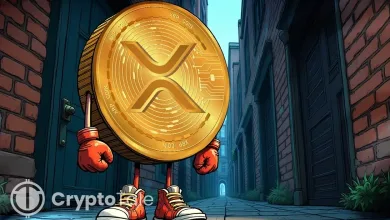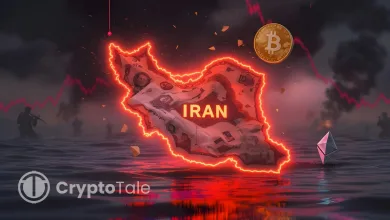SEC Delays Altcoin ETF Decisions for Bitwise and Grayscale

- The SEC delayed Bitwise’s Dogecoin and Grayscale’s Hedera ETF decisions until November 12.
- Over 92 ETF applications await SEC review, reflecting rising institutional demand.
- Altcoin ETF approvals remain uncertain while Bitcoin and Ethereum gain clearance.
The U.S. Securities and Exchange Commission (SEC) has again delayed decisions on altcoin ETFs, extending review timelines for Bitwise and Grayscale filings. On Tuesday, the agency moved its deadline for the Bitwise Dogecoin ETF and Grayscale’s Hedera ETF to November 12. These delays continue a trend of careful evaluation, despite earlier approvals for Bitcoin and Ethereum exchange-traded products.
Rising ETF Backlog Signals Growing Pressure
The SEC’s caution comes amid a surge of new applications. As of late August, 92 crypto-related ETF products awaited decisions, which included 31 spot altcoin ETF filings in the first half of 2025. Solana and XRP accounted for the largest share, with eight and seven applications, respectively.
In most cases, the SEC has used the full review periods. Instead of early approvals or rejections, the agency has consistently chosen deadline extensions. The result is a mounting backlog that highlights both institutional demand and regulatory hesitation.
Earlier this month, the SEC delayed NYSE Arca’s Truth Social Bitcoin and Ethereum ETF until October 8. It also extended the 21Shares and Bitwise Solana ETF review to October 16, and the 21Shares Core XRP Trust to October 19. On August 25, deadlines for WisdomTree’s XRP Fund and the Canary PENGU ETF were also postponed.
Grayscale and Bitwise Push Ahead
Both Bitwise and Grayscale remain central players in the ETF race. Bitwise filed for its Dogecoin ETF in March, which began statutory review that month. Grayscale is pushing forward with its Hedera ETF while also updating plans for long-standing products. The company recently filed to convert its Litecoin and Bitcoin Cash trusts into ETFs.
The situation mirrors Grayscale’s 2024 success, wherein, after a legal battle, the firm converted its Bitcoin trust into the first U.S. spot Bitcoin ETF, followed by an Ethereum ETF, thus opening the door for broader institutional access. Now, the company is applying the same framework to altcoins.
According to recent filings, moving these trusts to major exchanges would allow daily share creations and redemptions, keeping trading prices closer to net asset value. The shift also aims to reduce premiums and discounts often seen in over-the-counter markets.
By repeatedly extending reviews, the agency shows it is unwilling to fast-track altcoin ETFs. However, the delay is not reflected for Bitcoin and Ethereum products, which gain clearance with significant regulatory and legal pressure.
Related: SEC to Host Roundtable on Crypto Regulation On Oct 17
Broader Implications for Crypto Markets
The delays emphasize the SEC’s cautious stance on altcoins. Since January, U.S. regulators have softened some enforcement actions. Several investigations and lawsuits have been dropped, while the CFTC has aligned with White House policy guidance. Yet, when it comes to altcoin ETFs, regulators remain restrained.
Institutional interest continues to climb. Bitcoin ETFs launched in January 2024 have processed over $1.2 trillion in cumulative trading volumes. Investors are now pushing for similar access to other cryptocurrencies. Proposals cover a range of assets, including Solana, XRP, Dogecoin, Avalanche, and BNB.
Despite this demand, there is still uncertainty. In Congress, there is a proposed bill of a digital asset market structure, which has the potential to restructure powers between the SEC and CFTC. The bill can be passed before 2026, according to the suggestions made by the lawmakers, such as Senator Cynthia Lummis. Until then, the regulatory environment for altcoin ETFs remains unsettled.




